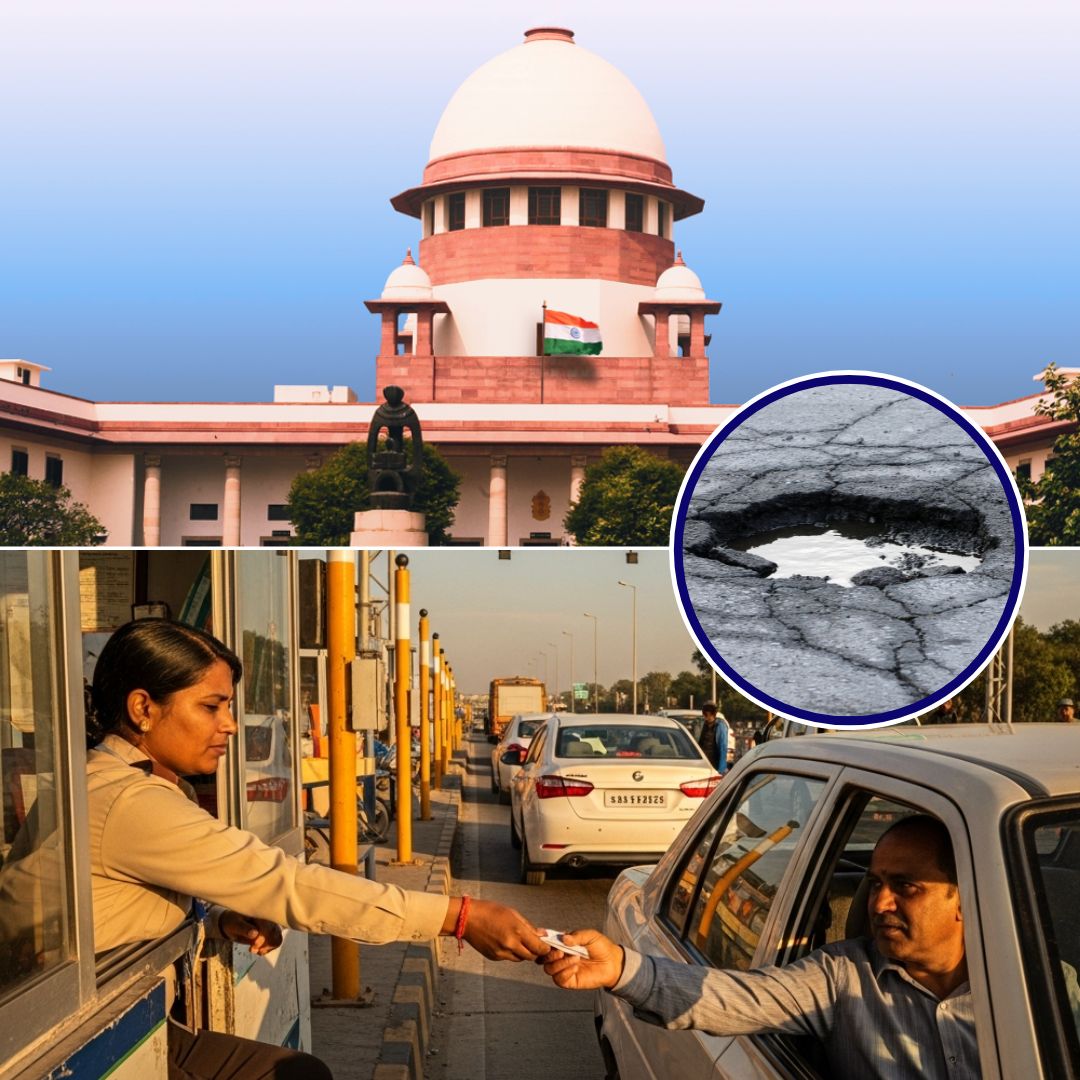The Supreme Court has delivered a landmark ruling for road users, upholding a Kerala High Court decision to suspend toll collection for four weeks at the Paliyekkara (Thrissur) toll plaza on NH-544. This action was taken following widespread public anger over run-down highways and marathon traffic jams.
The National Highways Authority of India (NHAI) had challenged the temporary ban, but a Bench led by Chief Justice of India BR Gavai and Justice K Vinod Chandran refused to intervene, asserting that no toll should be collected on roads riddled with potholes and bottlenecks.
The apex court has ordered the High Court to continue overseeing repairs, making it clear that road quality is non-negotiable when asking citizens to pay toll fees.
Court’s Rebuke for ‘Toll on Citizens’ Patience’
In a strongly worded judgment, the Supreme Court sent a clear message about the rights of commuters. “Let the citizens be free to move on the roads, for use of which they have already paid taxes, without further payment to navigate the gutters and potholes, symbols of inefficiency,” the court observed.
The Bench pointed out that the NHAI’s responsibility went beyond collecting money and extended to upholding citizens’ right to safe, functional roads. The impetus for judicial intervention was NHAI’s failure to act on previous High Court orders to fix the situation, leaving thousands of commuters in perpetual gridlock and danger.
This ruling is seen as a watershed moment by road users, who have long demanded accountability from authorities managing national infrastructure.
NHAI’s Response and Ongoing Repairs
NHAI officials, represented by the Solicitor General, expressed concern that the toll suspension could seriously affect ongoing and future maintenance. They contended that major construction, including flyover and underpass upgrades, was already in progress and that the delays and poor conditions were temporary setbacks.
The NHAI promised the Supreme Court that repairs were being carried out “on a war footing” and that regular toll collection would only resume once a satisfactory level of service was restored.
The Bench, while acknowledging these efforts, insisted that monetary interests cannot supersede public safety, directing continued court oversight and requiring all contractors working on the highway to be answerable to the judiciary.
Background to the Toll Suspension
Trouble at the Paliyekkara plaza had been brewing for months, with social media and traditional news outlets inundated by stories of commuters ensnared in traffic for up to 12 hours, facing dangerous diversions and crumbling carriageways.
The Kerala High Court intervened after finding that no meaningful action was taken despite numerous warnings to the NHAI. The state’s strong stand was further justified when on-site inspections confirmed appalling road conditions.
The Supreme Court’s endorsement of the toll suspension is a historic step, challenging the unchecked imposition of tolls, and by extension, the lack of accountability for essential services, when standards are ignored. The case has ignited a nationwide debate over the legal and ethical responsibilities of toll operators.
The Logical Indian’s Perspective
This episode exemplifies the vital role of judicial checks in preserving the rights of ordinary people. Roads are more than passageways; they underpin daily livelihoods, requiring safety and dignity.
The Supreme Court’s ruling has not only granted temporary relief but also entrenched a legal precedent that prioritises citizen safety over bureaucratic or contractual convenience. The Logical Indian welcomes and applauds the wisdom shown by the judiciary in standing up to inefficiency and reinforcing the value of public trust.












